Two Black women artists you should know
Barbara Gothard and Margaret Vendryes are painters with purpose.
I have a passion for painting. But when it comes to colorful canvases created by visionary women of color, sign me up. These two female artists have mastered their medium: they have something to say in a time when it needs to be said. Thematically, the work of these two women asks questions about our culture while never neglecting the duty of the artist to introduce truth and beauty to our eyes.
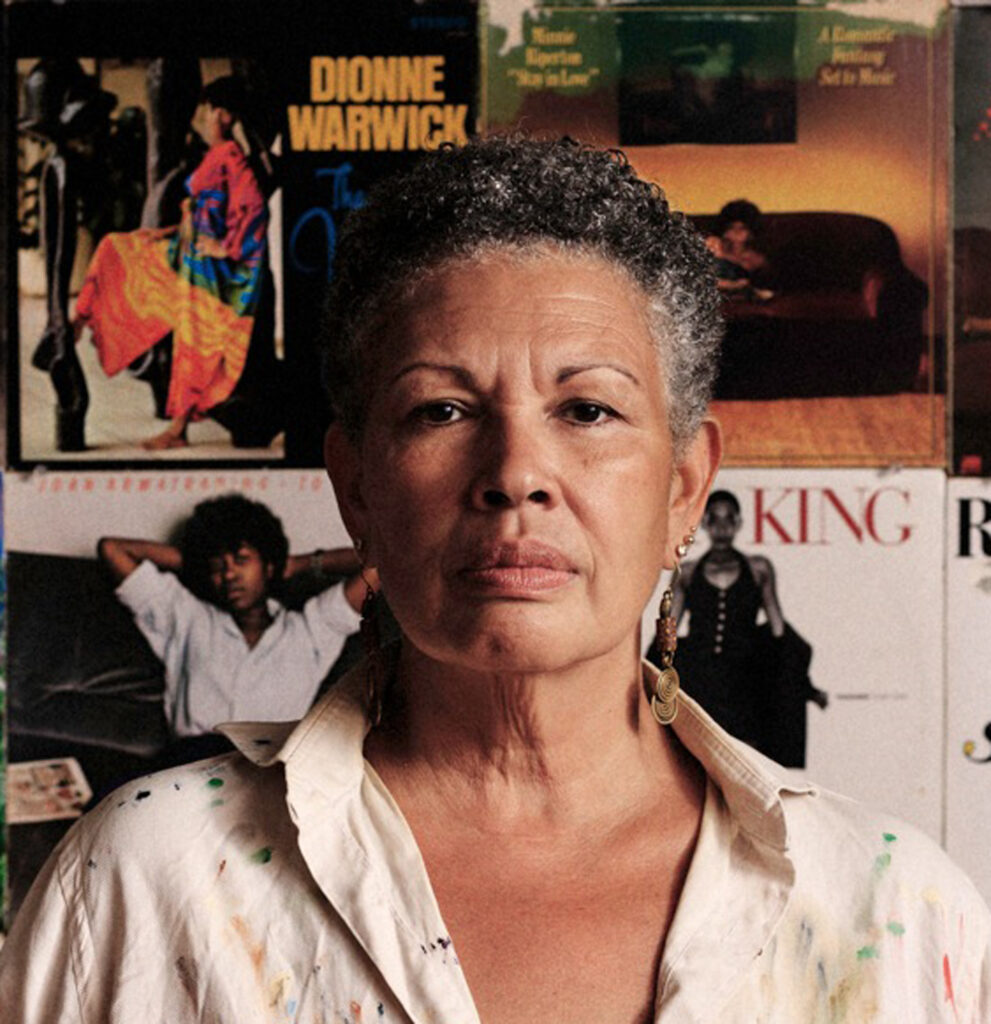
MARGARET VENDRYES
Margaret Rose Vendryes is an art historian, visual artist, and curator. She has degrees from Amherst College and Tulane University, and a Ph.D. in art history from Princeton University. She taught at Princeton and Amherst before joining faculty at York College and The Graduate Center of the City University of New York. Among several honors, Vendryes was a Scholar-in-Residence at the Schomburg Center for Research in Black Culture. In 2008, University Press of Mississippi published Vendryes’ book Barthé, A Life in Sculpture, the first comprehensive monograph on the late African American sculptor, Richmond Barthé.
But it is her own artwork that is worthy of study. A remarkable painter, Vendryes has had solo and group exhibitions of her African Diva Project paintings from Boston to Biloxi. She is currently Professor and Chair of the Department of Performing and Fine Arts and Director of the Fine Arts Gallery at York College.
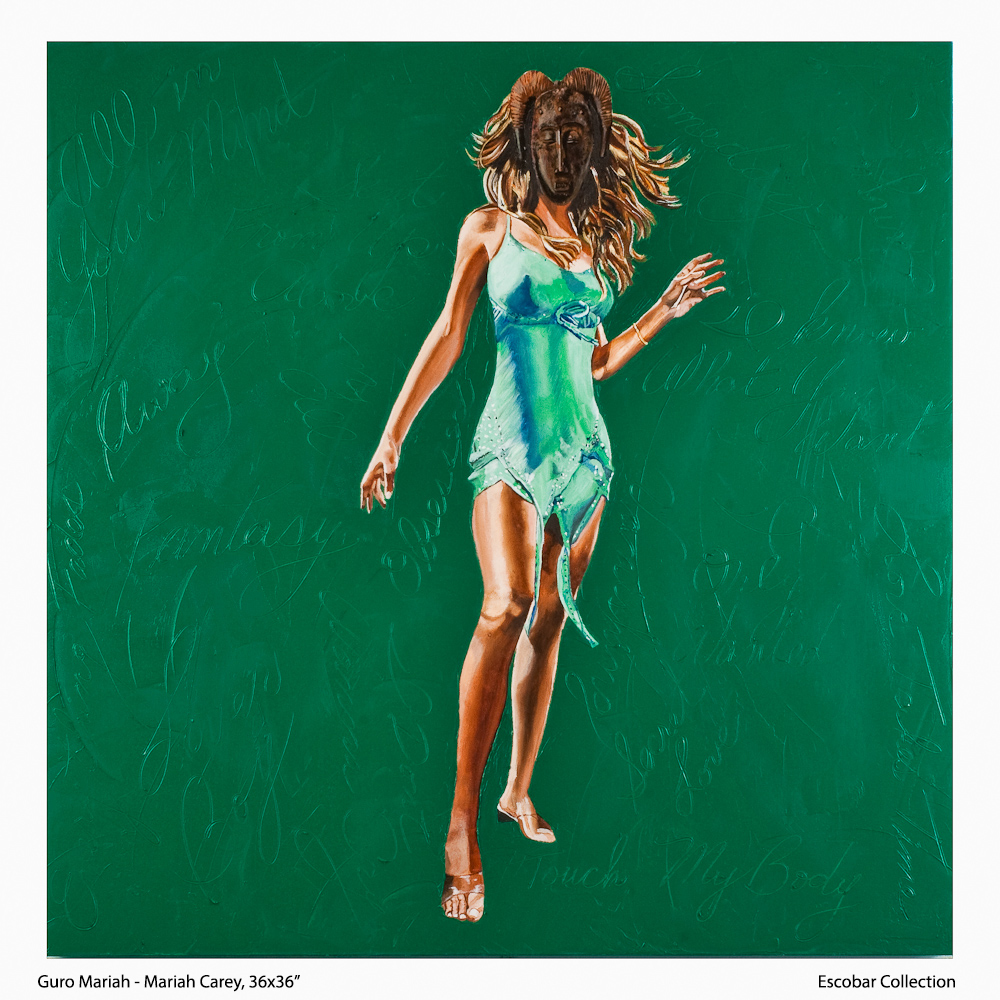
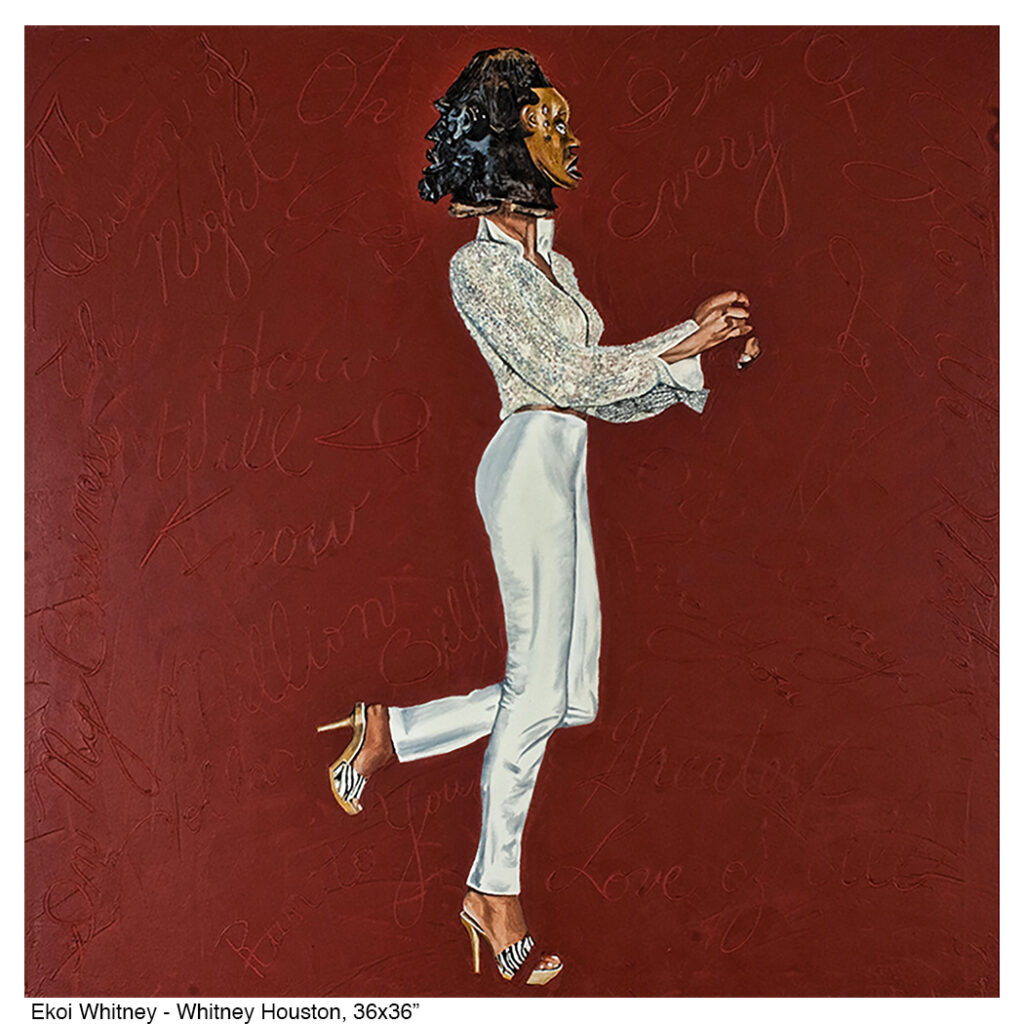
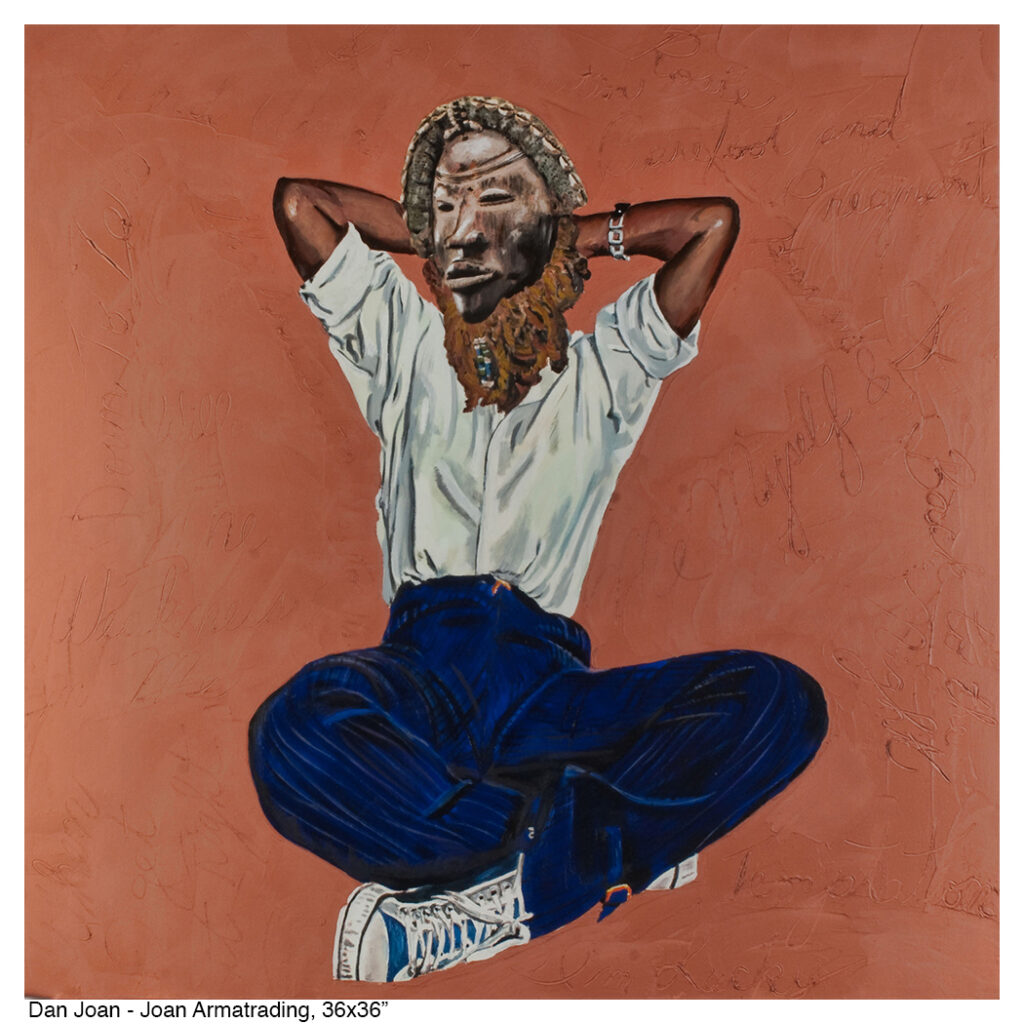
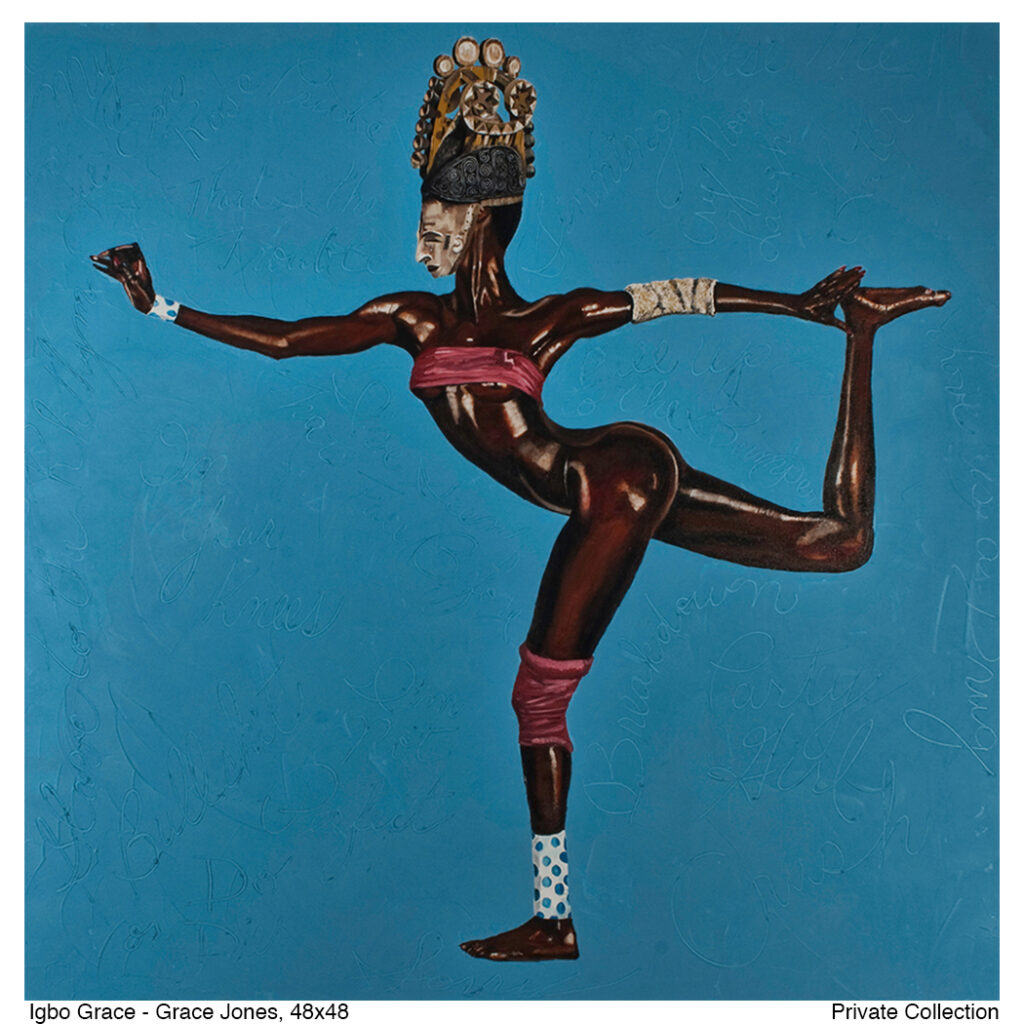
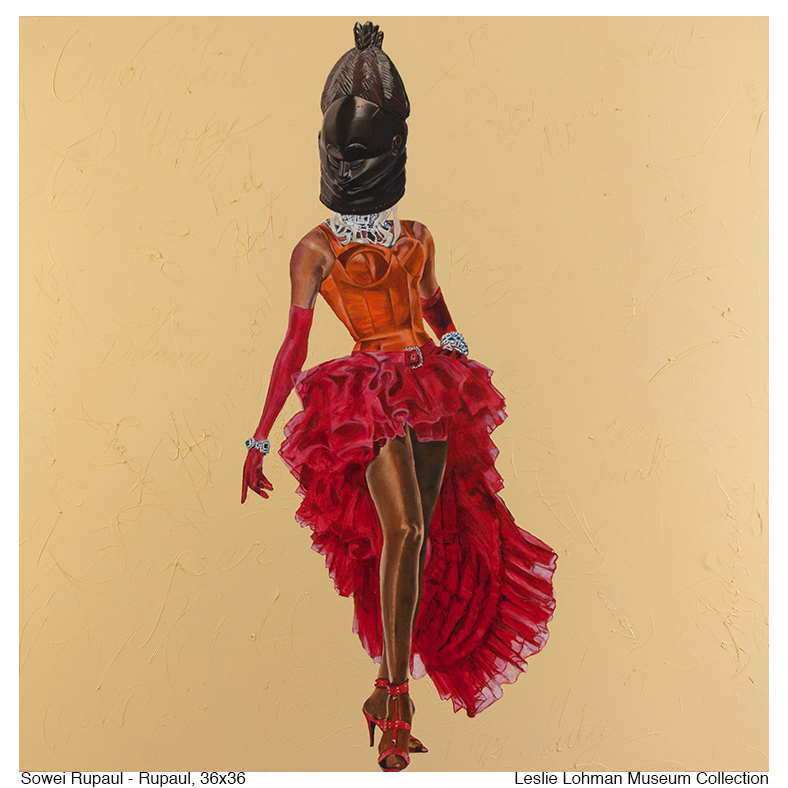
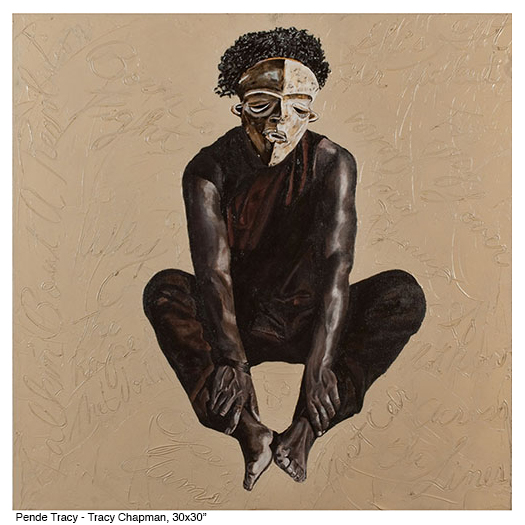
Now New York based, Vendryes was born in Kingston, Jamaica and began her studies in costume design before moving to fine art. That flair shows in her work, especially her African Diva Project, which portrays contemporary Black female pop stars as ancestor figures. The series is remarkable in its intersectionality of Western pop and traditional African culture; heterosexual and queer women; and avant-garde and commercially successful subjects. Painting and mixed media collides the legacy of African descent as reflected in, and relevant to, popular Black music and visual culture in the contemporary United States.
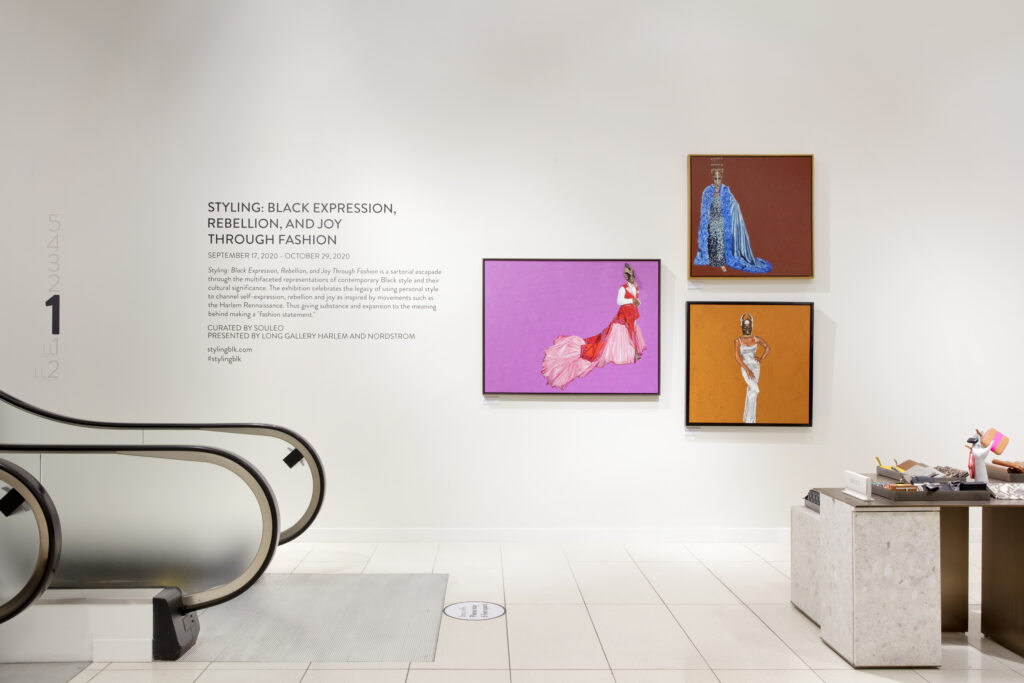
These paintings are literally multilayered, with textured oil paint and cold wax on canvas, and more recently, embedded African masks. While the figures are portraits of mainstream pop culture icons wearing traditional African masks, there is subversion at play because those masks were ceremonially worn only by men. The series began with a portrait of Donna Summer, inspired by her Four Seasons of Love album cover, and has grown to around 50 works, from featuring female “divas” to including a recent portrait of actor-singer Billy Porter (Kinky Boots, Pose).
Vendryes often speaks about the meaning of her work, outside of her vocation as lecturer teaching African Art at Boston University in Massachusetts, and for African and African American Art at Wellesley College in Massachusetts. In 2015 she gave the opening lecture for The Visual Blues, an exhibition with work from the Harlem Renaissance at the Jepson Center for the Arts.
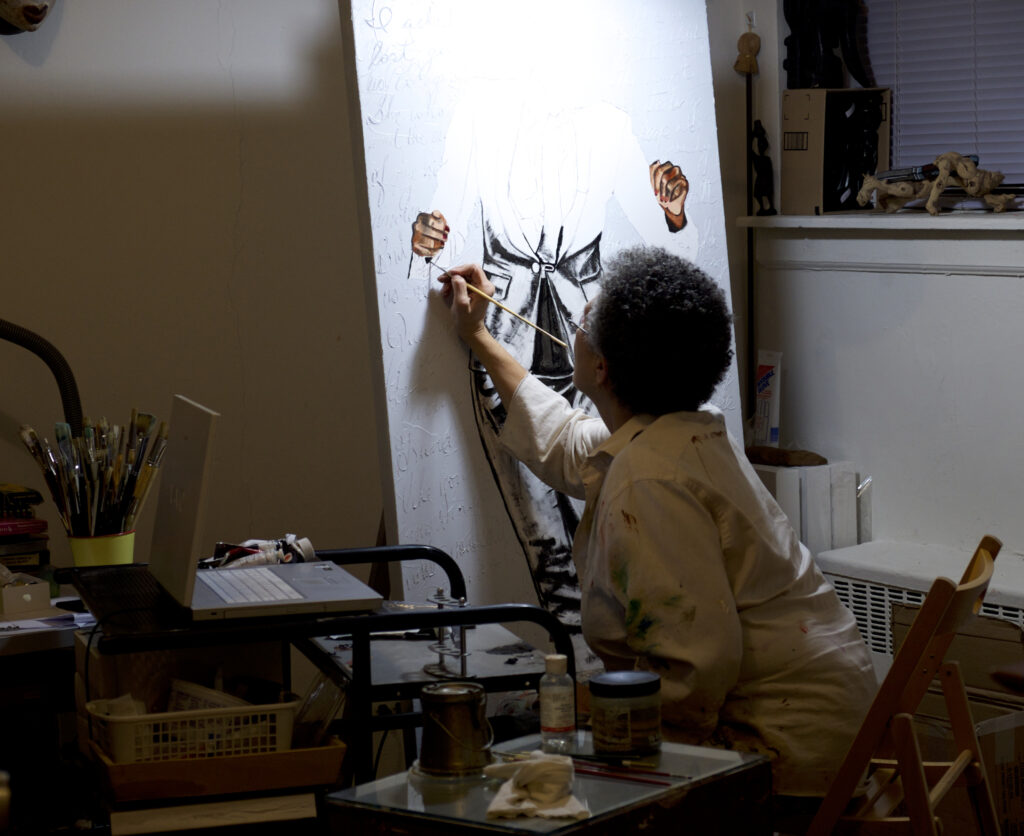
In 2013 Vendryes returned as Distinguished Lecturer in Fine Arts and Director of the York College Fine Arts Gallery at York College, CUNY. Schomburg Center for Research in Black Culture commissioned an artwork in 2014 from Vendryes for an exhibition celebrating the 40th anniversary of Ntozake Shange’s for colored girls who have considered suicide / when the rainbow is enuf. We are very pleased to post her latest African Diva, Bete Toni.
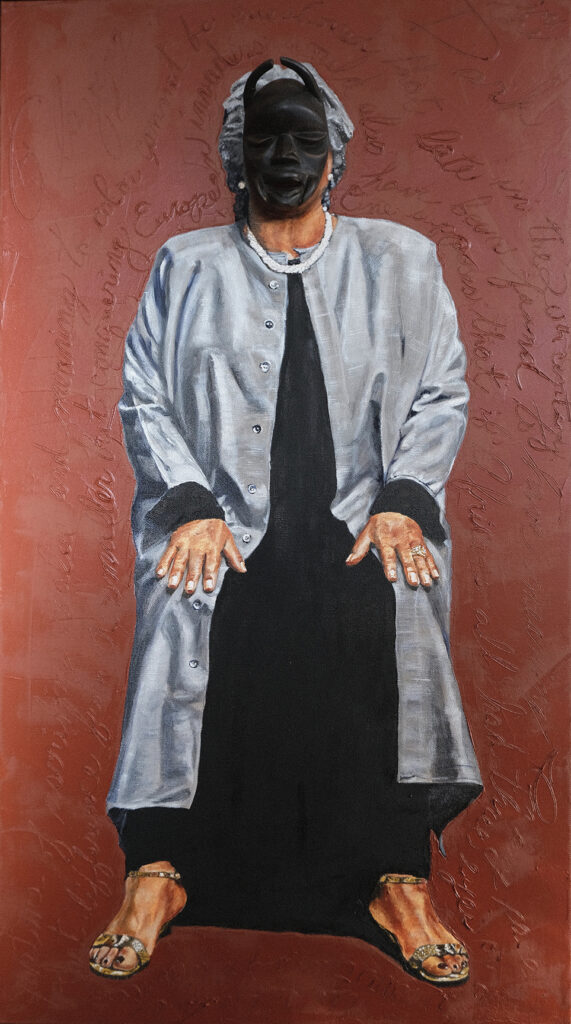
The link to her virtual studio visit is one of the best ways to connect with the backstory of the African Diva Project.
Experience the virtual studio visit of Margaret Rose Vendryes here. Visit Margaret’s website here. Join her for an art talk via Zoom on February 24. Register here.
BARBARA GOTHARD
Barbara Gothard’s first memory of wanting to be a painter takes her back to the second grade when her teacher “read the story of Bambi and then asked us to create a drawing (crayon on school-grade manila paper) about the book. My drawing was of Bambi looking back and discovering that his mother had been shot in what I recall as a beautiful forest-like setting. My drawing was awarded first prize in an art competition after which my mother enrolled me in Saturday morning art classes. Growing up in a fairly dysfunctional family my art became a new way for me to communicate and I knew that art would always be an integral part of my life.”
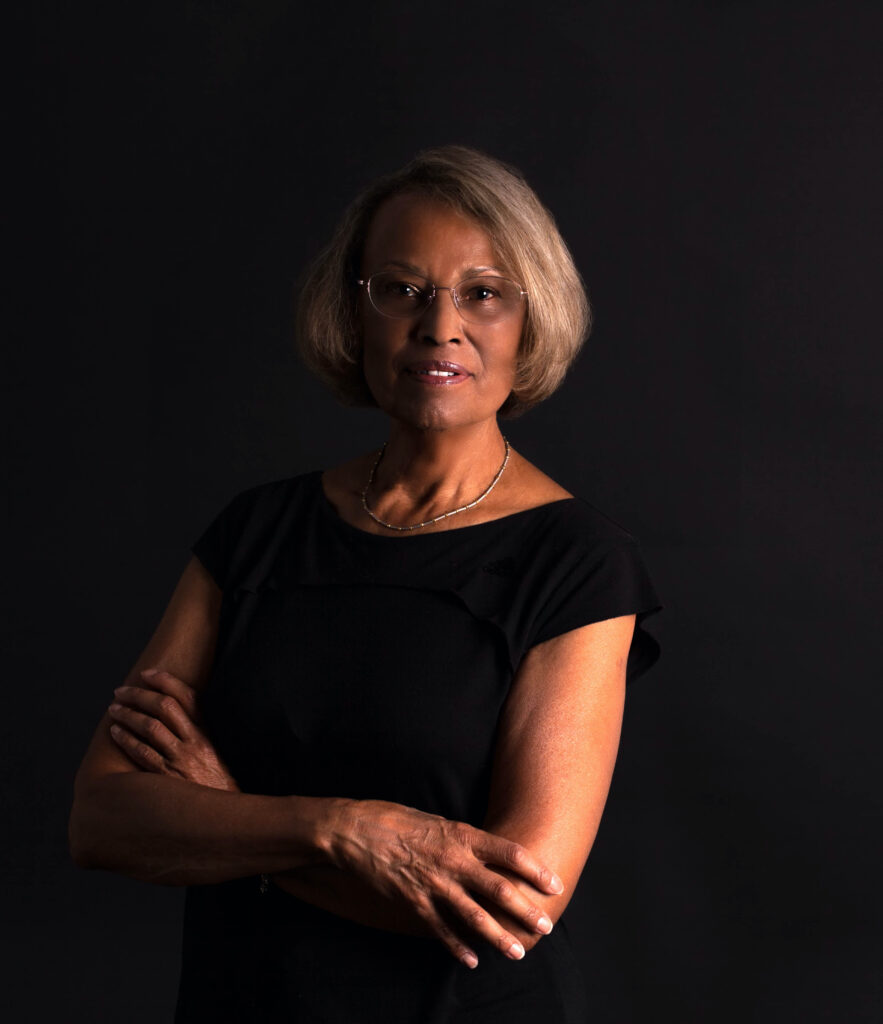
Barbara, who is based in Palm Springs, CA has many ideas and her oil paintings take these ideas and convey them in a tangible form. “My art practice is such an essential element of my existence that going one day without engaging with it in some form — even if it’s just to tidy up my workspace while thinking through how to solve a particular piece of the creative puzzle in a particular painting — is difficult for me.”
Recently, Barbara switched to water mixable oil paints and also uses the ProCreate digital illustrator app on her iPad. “Life In The Cracks, one of my digital paintings, is influenced by my ever-changing California desert environment — it’s soft, malleable and metamorphic, surrounded by majestic mountains and awash in brilliant colors — led to this interpretation of cause and effect. It’s and example of how I use the interplay of reality and dreamlike qualities to continue to convey my focus on contradictions.”
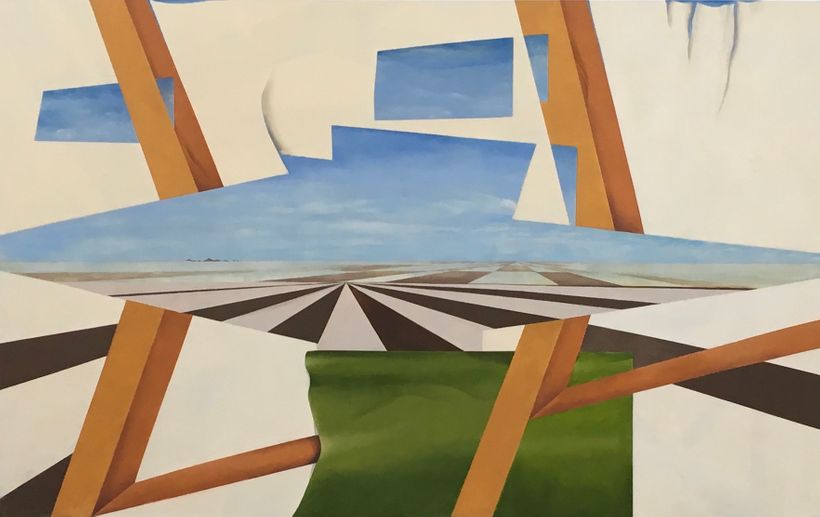
Those contradictions are “certainly part of life as we know it today and reminiscent of my own journey. I am highly influenced by my environment which has resulted in autobiographical references in my work. For me, it’s a way of relating to situations in the outside world. Since my work is not currently figurative nor realistic — my art is created from a contemporary surreal standpoint — the incongruous juxtaposition of real objects/scenes in unreal settings.”
What’s Next – A Glimpse Into the Journey and Moving Beyond in her Hurdles series are examples of that. The hurdles or architectural beam like elements represent the obstacles we all face but know that we do have options, represented by the openings, the vastness of skies and in this case, an organic element.
Influenced by her Nichiren Daishonin Buddhism, her paintings are a “story of introspection, reflection and hope, on my part and by the viewer,” she says.
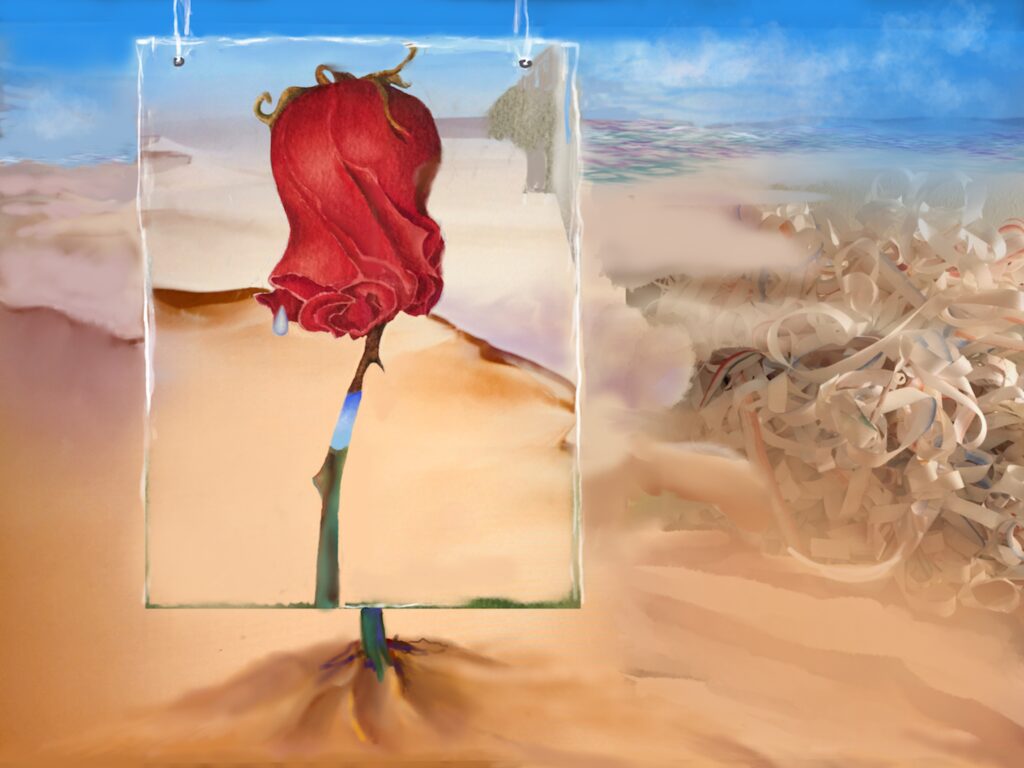
Life_In_The_Cracks
Digital Print, Archival Ink on Hahnemuhle Archival Ink, 22×30 (unframed), 2019
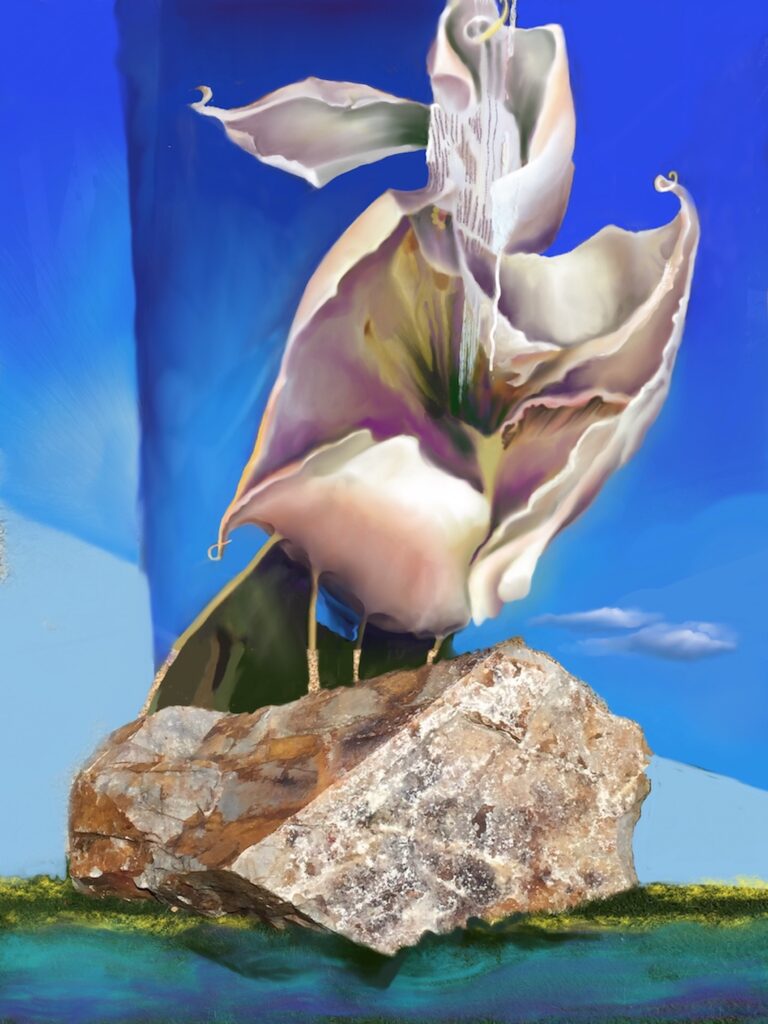
Archival Ink on Canvas, 22×30 (unframed), 2019
“For example, my Renge series is based on the concept of causes – good or bad – which always have an effect – positive or negative. I was influenced by the Buddhist traditions of T’ien-t’ai in China and Nichiren Daishonin in Japan (1222-1282). The Renge Series visually explores the simultaneity of cause and effect often symbolized by flowers that grow and blossom in muddy water – at the same time.”
“This quote sums it up for me: When we create or appreciate art, we set free the spirit trapped within. This is why art arouses such joy. — Daisaku Ikeda, former President Soka Gakki
“And joyful it does make me.”
Visit the website of Barbara Gothard here.





